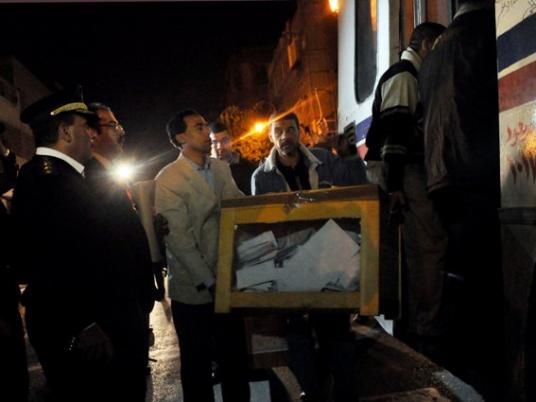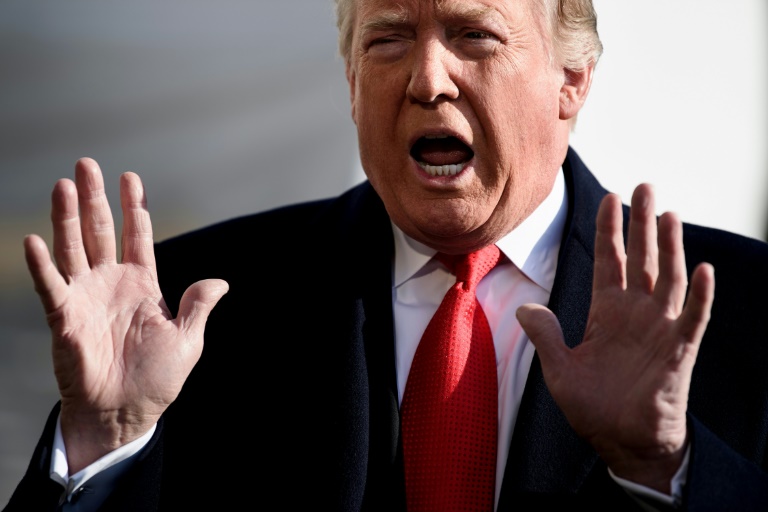
With little to no training, judges who presided over polling stations in the parliamentary elections last November were forced to improvise: they put up extra curtains as makeshift polling booths, set up benches for elderly voters and made sure that their classrooms were staffed with enough female employees to verify the identities of women wearing face veils.
With the presidential election beginning on Wednesday, judges have still received little official guidance as to how to oversee the voting process. But with 20 polling days under their belts — 12 days of voting during the People’s Assembly elections, and eight during those for the Shura Council — they are a bit more seasoned, even if this means that they had to figure things out for themselves.
“Mostly, we talk to each other over Facebook,” says Essam Farag, a Court of Cassation judge in Alexandria. “There are many judges’ Facebook pages where we talk about how to supervise the polling stations.”
Farag is not administering the election this time, but says it is a topic of near-constant discussion among his colleagues. These private discussion groups online allow judges to speak freely about some of the challenges they face on election days.
While the Presidential Elections Commission, composed of senior judges, has provided some direction this time around in the form of televised lectures and a few conferences, as well as a CD, judges’ primary means of information-sharing has been through their own networks. The more tech-savvy among them rely on Facebook to communicate with their peers, while others discuss their electoral duties during evening chats over tea and juice at the many judges clubs across the country. In these forums, they discuss everything from Election Day anecdotes to interpretations of the dictates of the PEC.
“Should there have more been training from the PEC?” says Medhat Shabarash, a judge at the Cairo Appellate Court. “There should have been a lot of things, but circumstances prevented it.”
“Judges don’t have clear orders from the PEC to organize crowds. This is the main problem of the presidential election,” said Hossam Mikawy, a judge at the South Cairo Civil Court. “They say we should assign a poll worker to deal with crowds, but with thousands of voters we will need more than that.”
Mikawy presided over polling stations in both legislative elections but will be on call at his court on Election Days this week to fill in for any judges who need to leave their polling stations in the event of an emergency.
Many judges expressed concern about having enough time to process all of the voters assigned to a given polling station and the overcrowding this would cause.
“Logically, in a station with 3,000 voters, I will only be able to get through half of them in two days,” said Shabarash.
“[Administering the election will be] harder this time because all of Egypt will vote at the same time,” said Doaa al-Zawawy, an administrative court judge based in Cairo overseeing a polling station in Bulaq. The People’s Assembly and Shura Council elections were conducted in three and two stages respectively, so far fewer people were voting at once.
Mikawy suggested that large crowds in front of polling stations may deter some Egyptians from voting, particularly given the summer heat. In addition, large numbers of people milling around could make it more difficult for police to identify and prevent campaigning, which is forbidden on voting days.
Some of the PEC’s rules do not stipulate how they should be enforced, leaving judges to interpret them as they see fit. For example, voters are forbidden to use mobile phones to photograph ballots but there is nothing in the law about confiscating phones when voters enter the classroom or other means of ensuring that the law is followed.
“It will be different from judge to judge,” said Mikawy, when asked about enforcement of the mobile phone provision. But he went on to say that the dictates set out by the PEC are viewed by many judges as guidelines, rather than hard and fast rules.
“Our judges are free, they will not accept orders from the PEC,” he said, “This is the mentality of our judges.”
Another major challenge judges face is helping illiterate Egyptians through the voting process. With the illiteracy rate at about 34 percent — and higher among women, according to a 2010 UNICEF statistic — and few protocols to guide those who can’t read through the voting process, each judge addressed the needs of voters in his or her own way during the parliamentary elections.
In one case, a judge patiently read more than 100 names on the independent candidate ballot to help a voter make an informed choice. In another, judges told voters which symbols were on the ballot but not the candidates they corresponded to — a well-meaning but perhaps misplaced effort, since the voters could see the symbols for themselves and it was the candidate names they could not read. In one unfortunate instance, an exasperated judge shouted at an elderly voter, asking him if he even knew why he was there in the first place.
The absence of standardized procedures for illiterate voters often led to public discussion of the voter’s preferences inside the polling stations, leaving everyone present in little doubt of his or her choice. Judges themselves differ as to what their role should be with regard to voters who cannot read the ballot papers. While some suggested that there should be more voter education geared toward them, others felt differently.
“Illiterate voters are not my responsibility,” said one Cairo-based judge who requested anonymity. “But it can often take five minutes for them to vote,” he said — five times longer than the average voter.
Three weeks of voting over the last six months has taken quite a toll on the judges-cum-polling station heads. While some feel it is their civic duty to oversee the birth of their country’s democracy, others find it too heavy a burden to bear and would like to see the judiciary in a more remote supervisory role. Many older judges have excused themselves from this round citing medical concerns.
Article 88 of the 1956 Constitution required judicial supervision of all elections in Egypt. A landmark court decision handed down in 2000 by the Supreme Constitutional Court — after 10 years of deliberation — narrowed this provision to stipulate that each individual polling station must be overseen by a judge.
In 2005, the judiciary mobilized against election-rigging by Hosni Mubarak’s National Democratic Party, and lobbied for greater independence in overseeing elections, resulting in a high-profile confrontation between the executive and the judiciary. Up until then, the NDP had classified government ministry employees as members of “judicial bodies” to allow them to supervise elections and help deliver a win to the ruling party.
In 2007, Article 88 was altered to strip judges of their election oversight role, creating a new body controlled by the ruling party to administer elections. Judicial supervision was reinstated in Article 39 of the Constitutional Declaration issued unilaterally by the Supreme Council of the Armed Forces last March. In light of its history, the prevailing view became that only direct judicial supervision would result in a fair voting process.
Regardless of whether judges wish to be in classrooms on voting days or feel that they are sufficiently prepared for the role, Shabarash predicts that they will remain there for some time to come.
“People trust judges,” he says. “This is why we have to do it.”




